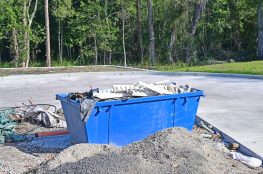The Essential Guide to Skip Bins: Do’s and Don’ts for Proper Usage
Introduction
Skip bins are indispensable for efficient waste disposal, but adhering to specific guidelines is crucial for responsible usage. In this practical guide, we’ll delve into the factual do’s and don’ts to ensure proper handling and disposal when using skip bins.
What to Do with a Skip Bin
- Segregate Waste – Do separate waste into categories like general waste, recyclables, and green waste to facilitate proper disposal and recycling.
- Check Permitted Items – Do check with the skip bin provider about permitted waste types to avoid penalties or additional charges.
- Maximise Space – Optimise space by breaking down large items and placing them strategically, ensuring efficient use of the skip bin’s capacity.
- Follow Weight Limits – Do adhere to weight limits specified by the skip bin provider to avoid overloading, potential damage, and additional fees. If necessary, hire a larger capacity skip bin.
- Notify Neighbours – Do inform neighbours about skip bin placement to avoid inconveniences and ensure accessibility for the skip bin delivery and pickup.
- Dispose of Hazardous Materials Properly – Do dispose of hazardous materials, such as chemicals, paints, and batteries, through designated disposal facilities, following local regulations.
- Utilize Proper Loading Techniques – Do load heavy items at the bottom and distribute weight evenly to maintain stability during transportation.
What Not to Do With a Skip Bin
- Overload the Skip Bin – Don’t exceed the skip bin’s capacity, as overloading can pose safety risks and result in additional charges. If necessary, hire a larger capacity skip bin.
- Throw Prohibited Items – Don’t dispose of prohibited items like electronics, tyres, or asbestos, as these require specialised disposal methods.
- Ignore Local Regulations – Don’t disregard local regulations regarding skip bin placement, road permits, or specified waste disposal practices.
- Mix Hazardous Materials – Don’t mix hazardous materials with general waste, as this can lead to environmental harm and may violate disposal regulations.
- Block Access Points – Don’t obstruct access points or place the skip bin in areas that impede traffic flow or emergency services.
- Neglect Safety Measures – Don’t neglect safety precautions, such as using personal protective equipment when handling waste, to minimise health risks.
- Leave Unattended Skip Bin Unsecured – Don’t leave an unattended skip bin unsecured, as it can attract illegal dumping or unauthorised use. Putting in a well-lit area, or behind a gate, can prevent this issue. Putting a tarp over the skip bin can also help.
By following these factual do’s and don’ts for skip bins, users can ensure responsible waste disposal, prevent environmental harm, and comply with local regulations, promoting efficient and sustainable waste management practices. We look after industrial or residential Skip Bin Hire Brisbane-wide. Talk to us about your disposal needs.
Information Disclaimer
The content of this article is meant for informational purposes only and should not be considered a source of professional advice, recommendations, or endorsements. It is not a substitute for seeking expert guidance or making well-informed decisions based on individual circumstances. Although we strive for accuracy and reliability, we cannot guarantee the information's completeness or suitability for all situations. Readers are urged to verify facts, consult experts, and consider their own context before taking actions or decisions based on this content. No warranties, explicit or implied, are provided regarding the accuracy, timeliness, or completeness of the presented information. Relying on this information is at the reader's own discretion and risk. We encourage readers to consult relevant professionals or experts for advice tailored to their specific needs. Neither the author, publisher, nor any affiliated parties will be held responsible for errors, omissions, or damages resulting from the use or reliance on the information in this article.



